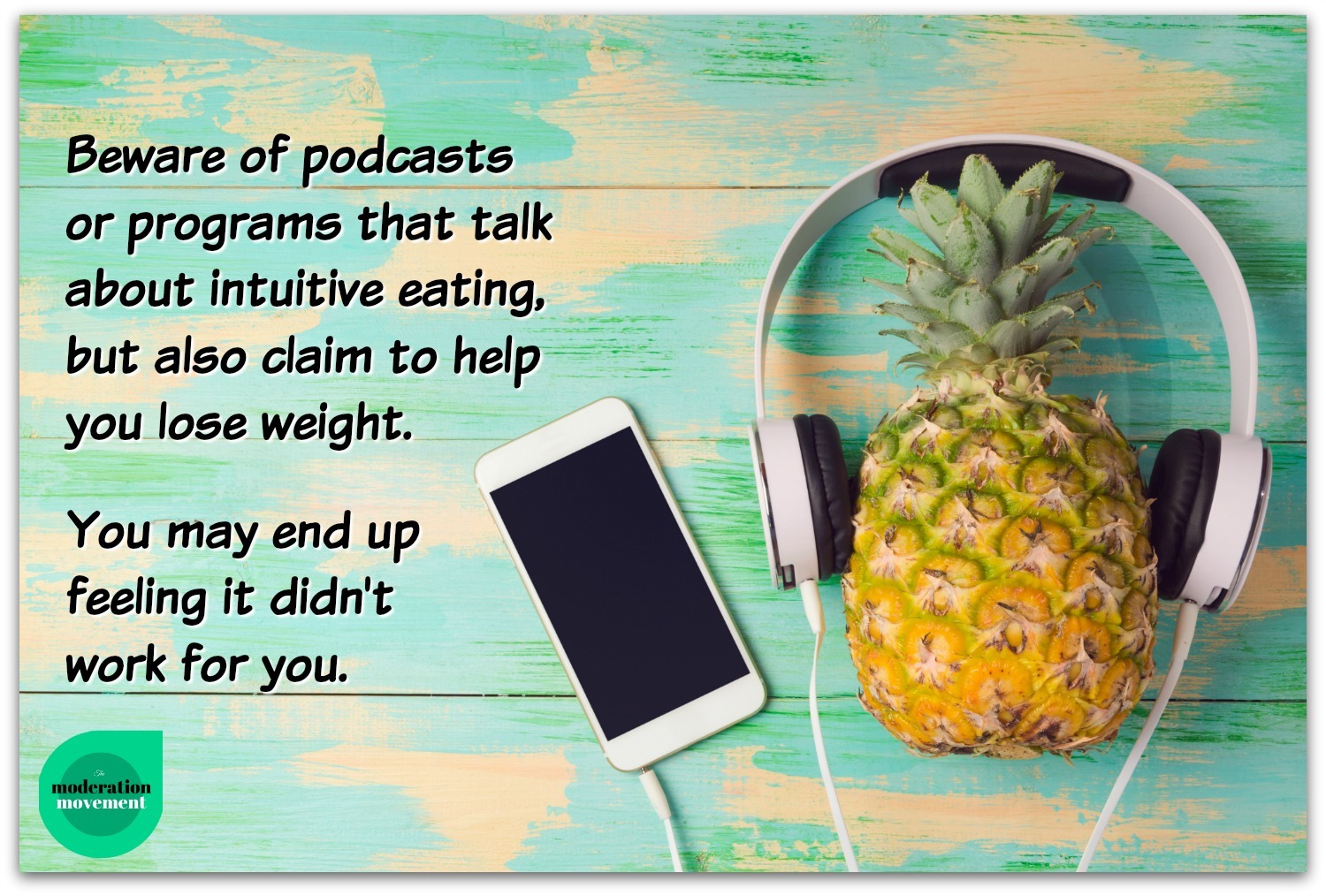So how do you know if you’re doing intuitive eating right?

Beware of podcasts, books or programs that talk about intuitive eating (or mindful eating), but also claim to help you lose weight.
The point of intuitive eating is to relearn how to eat based on your bodies appetite cues, something you were born with, but may have lost through dieting, food restriction, weight loss pursuits or just living in a world where many people eat for reasons other than hunger.
Intuitive eating is about reconnecting with the pleasure of eating and fostering a calm relationship with food and body. Intuitive eating also involves learning to eat in a way which nourishes your body adequately.
If a person loses weight through eating more intuitively, this is a SIDE EFFECT and not everyone’s weight will change. Weight loss is not, and should not, be a goal of intuitive eating.
Why?
Eating to appetite is about meeting your bodies energy and nutrients needs, not a marker for body size. Not everybody is meant to be thin (or thinner than they are) and some people when they have consistent access to adequate food will be in larger bodies. In addition, if you have lost and gained weight a number of times, you may have changed your bodies set point to a higher weight. If you feel this is you and you struggle with your current body and feel losing weight is the only way you’ll ever feel better, or be healthier, then I urge to seek help from a Health At Every Size/Non-Diet practitioner.
As the intuitive eating approach becomes more and more popular, I am hearing more people express that intuitive eating “didn’t work” for them. In most cases, this is because they have used intuitive eating as a means to lose weight and they didn’t lose weight, or “enough” weight.
If you’re practising intuitive eating for weight loss, you are doing the “intuitive eating diet” or “hunger-fullness diet” and not actually practising intuitive eating; and as we all know – DIETS DON’T WORK!!
So how do you know if you’re doing intuitive eating right?
- You feel calmer around food
- You spend a lot less time thinking about food
- You are learning to enjoy all food without guilt
- You are starting to notice appetite cues and are learning to trust them
- You sometimes eat less as you realise you’re not that as hungry, or you’re full
- You sometimes eat more as you realise you need more food
- You are starting to get more pleasure from food and may even find yourself craving things you never thought you would
For most people, it can time for these changes to start happening and many, if not most, people will need to address how they feel about their body as a key part of learning to eat intuitively. If you are focused on weight loss, you will continue to see your body as a problem and this will prevent you from truly learning to trust your body with food again.
